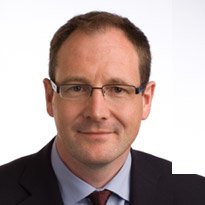Clinicians are concerned that the departure of the director of clinical and public assurance from the Health and Social Care Information Centre leaves a “clinical hole” in the organisation.
Dr Mark Davies is leaving the organisation at the end of March. His position on the board has been made redundant and he will not be replaced.
Dr Joe McDonald, who is chair of the Chief Clinical Information Officers Leaders Network and a consultant psychiatrist in the NHS, believes it is an “odd decision” by the HSCIC to not have a clinician on the board.
“Much of the failure of the National Programme for IT was a lack of senior clinical input and (Dr Davies’) departure obviously leaves a clinical hole on the board,” he said.
He described Dr Davies as a “very senior informatician and well-respected in his field”.
Dr Davies was a senior figure in the old NHS Information Centre under Tim Straughan and had been tipped as a possible future head of HSCIC after Straughan’s departure in March 2013.
He acted as the public face of the newly created organisation up until the arrival of Kingsley Manning as a hands-on chair of the HSCIC in June. Sources suggest Dr Davies and the new chair did not always see eye-to-eye and indicate he was encouraged to consider future career options after completing an internal strategy review late last year.
CCIO and London GP Dr Phil Koczan was surprised at news of Dr Davies’ departure with no replacement in-line.
He said Dr Davies had been very effective in his role at ensuring clinicians were kept informed about the HSCIC’s plans.
“From a research point of view it’s allowed a shared understanding at a clinical level about the direction of travel and it’s important that we maintain that,” he said.
“The concern is making sure we have got a joined-up clinical focus between what’s happening at the HSCIC, NHS England and locally on the ground.”
“I’m slightly confused as to who’s in charge at the moment and who’s driving the strategy because in theory if NHS England is commissioning the work of the HSCIC the leadership needs to be with NHS England, but equally if the HSCIC have a lot of power it’s important that there’s a strong clinical voice within that organisation as well.”
Dr Koczan hoped the HSCIC would make use of existing clinical networks such as CCIO and ensure there is a clinical point of contact within the organisation.
Dr Davies told EHI that it had been a “great privilege” working in the information centre and HSCIC.
“I strongly believe that information is an intrinsic part of care and it’s critical that we put clinicians and patients at the heart of what we do in terms of information,” he said.
“One of the most powerful things we can do to transform health care is to improve the intelligence that we have to understand both health and delivery of health care and that’s one of the reasons why working at a national level has been so exciting and rewarding.”
A statement from the HSCIC says the centre is grateful for Dr Davies’ contribution over a number of years, in particular for agreeing to stay with the organisation during the transition from the NHS Information Centre and in supporting the formation of the HSCIC.
“The contribution of care professionals to all aspects of our work is crucial and we already employ a wide range of doctors and nurses throughout the organisation,” the statement says.
“We are now looking to strengthen that contribution by appointing a panel of care professionals to support the board and the senior management team, as well as provide professional leadership within the HSCIC.
“We will be recruiting to these posts over the next few months and are keen to make sure these appointments will include a range of clinical professionals as well as doctors.”
Dr Davies said he is “exploring a number of opportunities” within the field of health.

